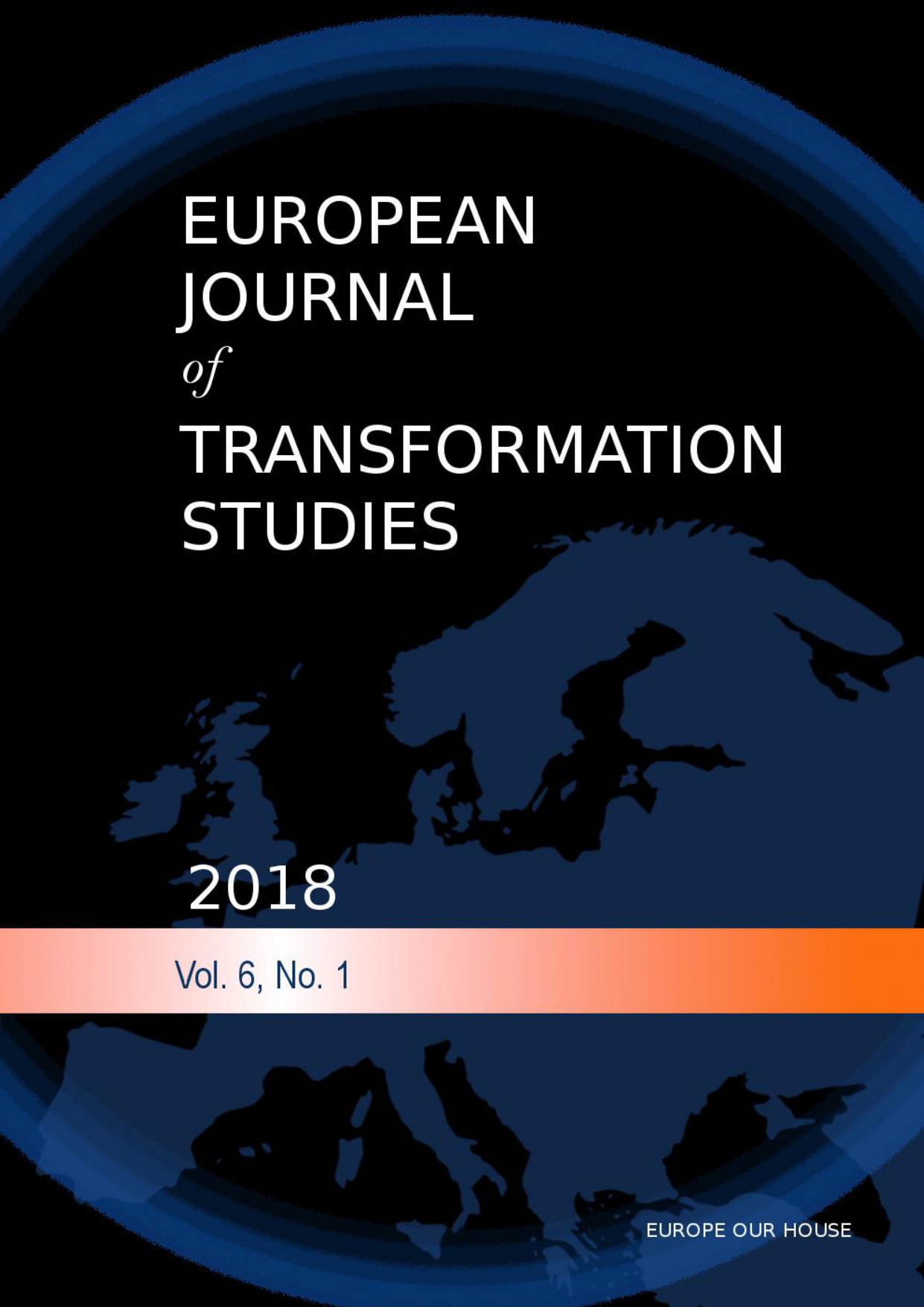Strategic and theoretical dimension of mad concept
Keywords:
MAD, perpetual peace, game theory, prisoner´s dilemma, humanistic - liberal conceptions level of analysisAbstract
The principal aim of the study is to examine the broader role of the mutually assured destruction (MAD) concept formed and in operation in the second half of 20th century. Via theoretical perspectives on the nuclear weapon such as philosophical, ethical, or the security one, it is not only to provide an extended definition of the concept while utilizing categories of the broadly accepted game-theoretic approach to mutually assured destruction in the theoretical premises of humanistic - liberal conceptions, but also to figure out whether the ethical implications of the state of nuclear strategic balance of power empirically examined within the effect of deterrence can even be reconciled with the Kantian liberal conception of perpetual peace.
Downloads
References
Bazaluk, O., Svyrydenko , D. B., (2017), Philosophy of War and Peace: In Search of New European Security Strategy. In: Anthropological Measurements of Philosophical Research. vol. 6, no. 12, pp.89 99.
Bazaluk, O., Blazhevych, T., (2016), The Philosophy of War and Peace. In: Philo sophy and Cosmology. vol. 17, no.2, pp.12 25.
Fabián, K., (2014), Crisis management training system for advanced security threats in cyberspace. In: IMSCI 2014 : 8th International multi conference on society, cybernetics and informatics. International Ins titute of Informatics and Systemics, Winter Garden. pp. 42 47.
Gilbert, L., (2010), Civil Society and Social Capital in Russia. In: ed. 2010. International Encyclopedia of Civil Society. Springer Science+Business Media, New York. pp.273 278.
Holt, C., Rot h, A., (2004), The Nash equilibrium: A perspective. In: PNAS. vol. 101, no. 12, pp. 3999 4002.
Joffe, J. Davis, J., (2009), Less Than Zero. Bursting the New Disarmament Bubble. In: Foreign Affairs. vol. 90, no. 1, pp.60 100.
Kazanský, R., (2015), The theory of conflicts, Publishing house of Matej Bel University, Banská Bystrica.
Kissinger, H., (2001), Does America Need a Foreign Policy?: Toward a Diplomacy for the 21st Century, Simon & Schuster, New York.
Kotkin, S., (2016), Russia's Perpetual Geopolitics. Putin Returns to the Historical Pattern. (on line) available at: https://www.foreignaffairs.com/articles/ukraine/2016-04-18/russias-perpetual-geopolitics (Accessed May 10, 2016).
Krejčí, O., (2009), Zahraniční politika USA, Professional Publishing.
Krepon, M., (2004), The Stability Instability Paradox, Misperception, and Escalation Control in South Asia. (on line) available at http://www.stimson.org/images/uploads/research pdfs/ESCCONTROLCHAPTER1.pdf (Accessed June 20, 2016).
Lasicová, J, Ušiak, J., (2016), Identities of Central European states in terms of formation of security environment . In: Annual of language and politics and politics of identity. Vol. 10, no. 1, pp. 45 59.
Liakhovskii , A., (2007), The Warsaw Treaty Organization’s Threat Assessment and War Plans on the Central Front in the mid Cold War period (1970 1980s) (including responses to NATO’s changing doctrines and plans, and the role of non Soviet allies) allies). In: ed. 2011. Milit ary Planning for European Theatre Conflict during the Cold War. Center for Security Studies, Zürich. pp.15 26.
Ljubownikow, S., Crotty, J., Rodgers, P., (2013), The state and civil society in Post Soviet Russia. The development of a Russian style civil so ciety In: Progress in Development Studies. vol. 13, no. 2, pp.153 166.
Lo, B., (2002), Russian Foreign Policy in the Post Soviet Era Palgrave Macmillan, Hampshire.
Lyotard, J. F., (1979), La Condition Postmoderne. Rapport Sur Le Savoir, Editions de Minuit, Paris.
Mearsheimer, J., (2014), Why the Ukraine Crisis Is the West’s Fault. The Liberal Delusions That Provoked Putin. (on line) available at: http://www.cfr.org/russia-and-central-asia/why-ukraine-crisis-wests-fault/p33940 (Accessed March 20, 2016).
Milofsky, C., (2010), Civil Society and Social Capital in the United States. In: ed. 2010. International Encyclopedia of Civil Society. Springer Science+Business Media, New York. pp. 313 320.
Müller, H. Schaper, A., (2004), U.S. Nuclear Policy after the Cold War, Peace Research Institute Frankfurt, Frankfurt.
Odom, W., (2007), NATO Nuclear Plans on the Central Front: When, Why, and How Nuclear Weapons Were Intended To Be Used at the Tactical Level. In: Military Planning for Europ ean Theatre Conflict During The Cold War. Center for Security Studies, Zürich. pp. 26 32.
Orwell, G., (2013), Politics and the English Language Penguin Books, London.
Plous, S., (1993), The Nuclear Arms Race: Prisoner's Dilemma or Perceptual Dilemma?. In: Journal of Peace Research. vol. 30, no. 2, pp.163 179.
Pomazalova, N., Korecki , Z., (2011), Public Procurement and Internet purchasing: the Defence Sector Evidence. In: Proceedings of the 11th European Conference on Egovernment. University of Ljubljana, Ljubljana. pp. 469 474.
Possony, S., (1954), Courage or Perdition? The Fourteen Fundamental Facts od the Nuclear Age. In: ed. 2009. War, Peace, and International Political Realism: Perspectives from the Review of Politics. University of Notre Dame Press, Notre Dame. pp. 211 226.
Pouliot, V., (2007), Pacification without Collective Identification. Russia and the Transatlantic Security Community in the Post Cold War Era In: Journal of Peace Research. vol. 44 no. 5, pp.605 622.
Putnam, R. D., (1995), Bowling Alone. America's Declining Social Capital. In: Journal of Democracy. vol. 6, no. 1, pp. 65 78.
Reid, T. R., (2004), United States of Europe, Penguin Books, London.
Remarks by the President at a Meeting on the New START Treaty 2010 (on line) avai lable at: https://obamawhitehouse.archives.gov/the-press-office/2010/11/18/remarkspresident-a-meeting-new-start-treaty (Accessed May 14, 2018).
Terem, P., (2017), Globálne mocnosti vybrané aspekty amerického líderstva. In: Politické vedy. vol. 20, no. 1, pp. 105 131.
Solik, M. Baar, V., (2016), Koncept ´Ruského sveta´ ako nástroj implementácie soft power v ruskej zahraničnej politike. In Politické vedy. vol. 19, no. 1, pp. 8 47.
Wang, L., (2010), Greenpeace. In: ed. 2010. International Encyclopedia of Civil Society. Springer Science+Business Media, New York. pp. 273-278.

 Academic Scientific Journals
Academic Scientific Journals



